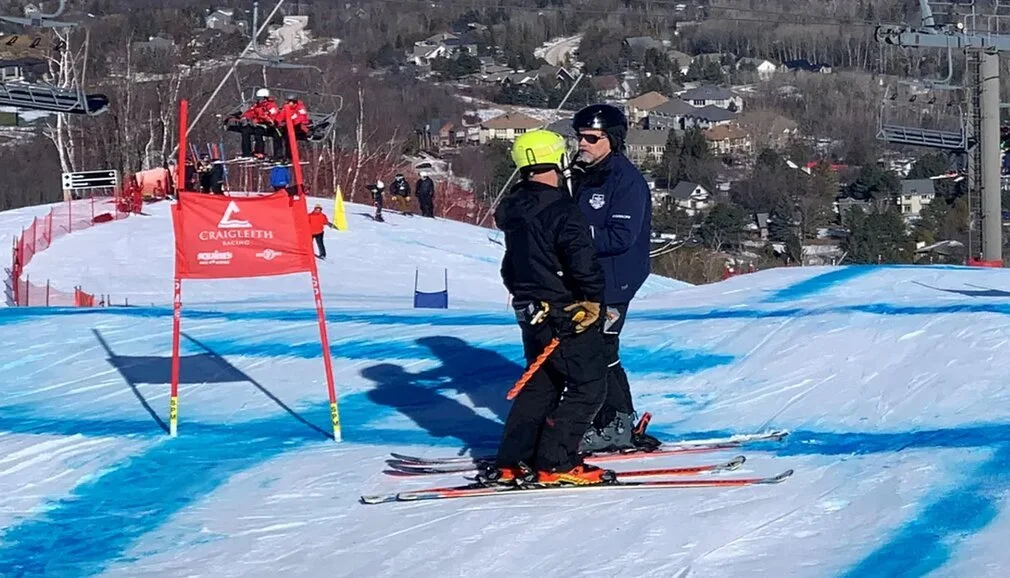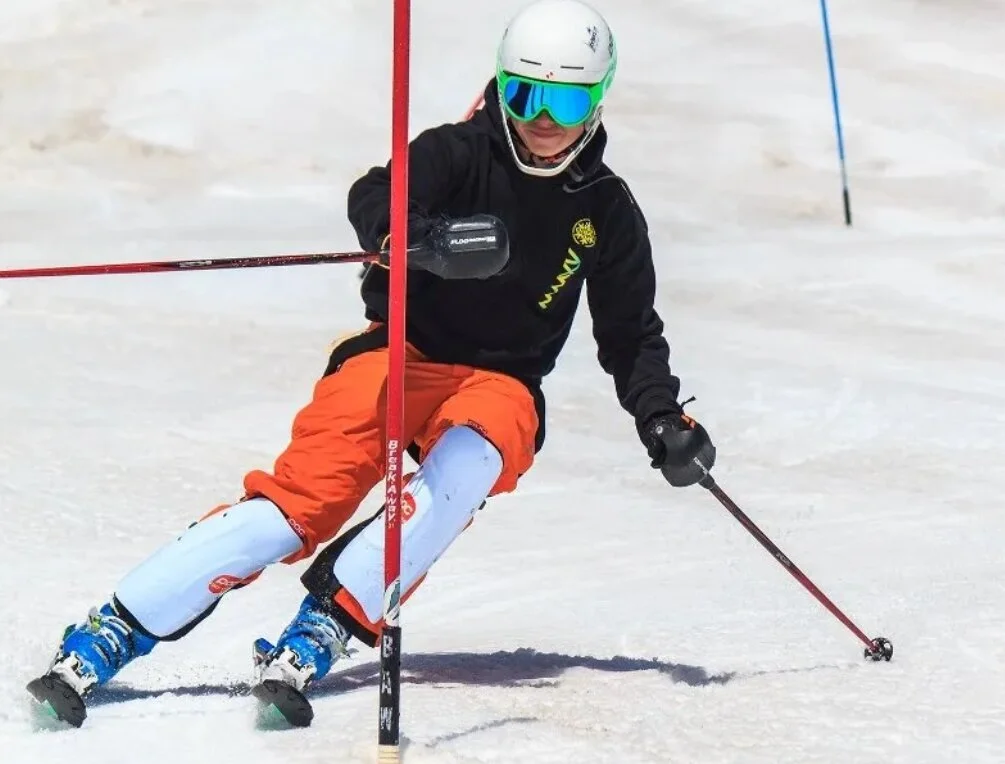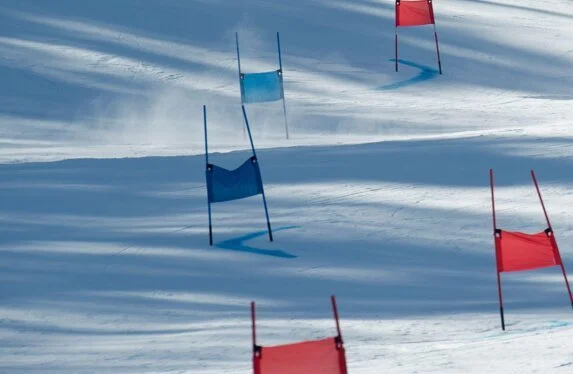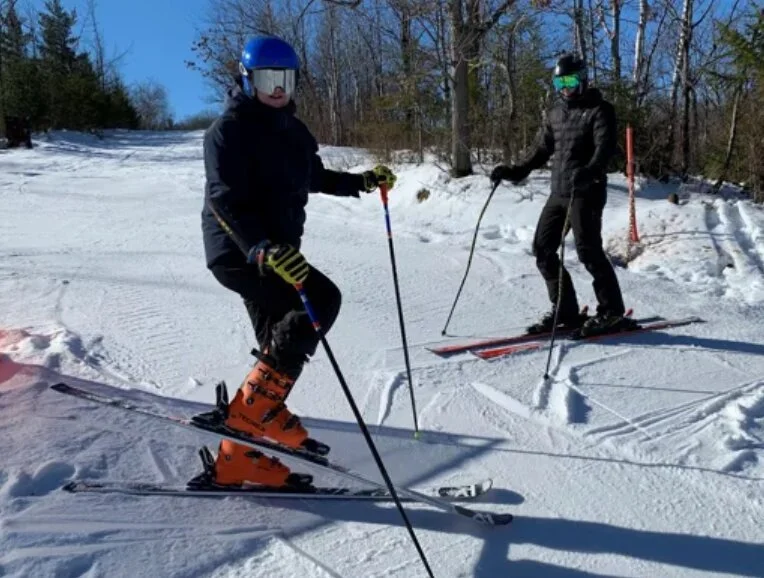Coaching Masters
Image by ARM
Overview
Coaching Masters ski racers requires a flexible and supportive approach that takes into account their unique needs and motivations.
Creating a positive and welcoming atmosphere is key to keeping adult athletes engaged and motivated in the sport.
This Module provides important tips coaches should keep in mind when coaching adults.
Objective
The objective of the Masters racing programs is to provide adults with the opportunity to hone or improve their skiing and racing skills, including technical aspects like turning and speed control, in a competitive and structured environment.
It aims to foster physical fitness, personal achievement, and community engagement among adult skiers, enhancing both their skills and enjoyment of the sport.
Individualized Approach
Recognize that adult ski racers arrive with diverse levels of experience, fitness, and varying degrees of confidence. Customize coaching plans to meet each racer’s specific needs, whether they are beginners or have prior racing experience.
Learn to Race
Encourage newcomers to review this module.
Experienced Masters
Masters racers with experience will benefit from the module designed specifically for them.
Safety is Paramount
The right equipment with properly fitted boots, well tuned race skis and proper length poles is important. Encourage adults, especially those new to racing, to review the Equipment module.
Make certain all adult racers are equipped with the necessary safety gear and take precautions to prevent them from becoming excessively cold as reviewed in the Safety Gear and Cold Weather modules.
Injury Prevention
Teach warm-up and cool-down routines. Ensure adults understand the importance of skiing with an Athletic Stance and stacking their outside leg when arcing turns to prevent knee injury as reviewed by the module Reduce Risk of Injury.
Maintaining physical fitness is the most effective way to reduce the risk of injury. Encourage Masters to adopt the strategies presented by the Fitness module for staying fit, maintaining a healthy diet, and getting adequate sleep.
Course Setting
When setting courses for Masters its important to accommodate the varying levels of skills, experience and fitness associated with different age groups.
Communication
When offering guidance, opt for straightforward, action-oriented language that aligns with the content outlined in the modules Ski Technique and Word Choice modules.
When providing guidance on technique, conclude your discussion with a concise bio mechanical statement, like “flex the ankle toward the big toe,” “keep the old outside arm forward to start a new turn,” or “roll the inside leg towards the inside of the turn.”
Avoid Using Metaphors
Using clear and direct instructions is more effective than relying on metaphors to explain a concept for the following reasons.
Metaphors can be open to interpretation, and what makes sense to one person may not make sense to another. This can lead to confusion or misunderstanding.
Metaphors are often imprecise and can oversimplify complex concepts. In coaching, especially in technical or skill-based sports, precise and accurate guidance is essential.
As a coach, when you catch yourself saying, “It’s like…,” pause and consider the physical movements involved in skiing, and strive for clarity and precision in your instructions.
Technique Improvement
Enhance the skiing skills of Masters by implementing the 80/20 Rule, which emphasizes focusing primarily on the turns they performed well.
To gain a deeper understanding of how this rule can accelerate the learning process, refer to the Learn Like Elites and Train with Purpose Learning Modules.
Coach Yourself
This module reviews a structured method for skiers to coach themselves.
Journaling
Maintaining a journal can significantly enhance a racer’s learning and development.
Supportive Environment
Create a welcoming and inclusive team environment where adult racers feel valued and supported. Encourage camaraderie and mutual support among the Masters race community.
Respect for Goals
Respect the individual goals of Masters racers. Some may be interested in competition, others in personal improvement, fitness, or simply enjoying he sport. Avoid pressuring them into goals they are not comfortable with or interested in.
Enjoyment
Emphasize the fun and enjoyment of skiing and ski racing. Work towards making the sport a fulfilling and enjoyable experience.
Summary
By focusing on these tips, coaches can provide effective guidance and support to Masters ski racers, helping them achieve their personal goals and enjoy the sport to the fullest.
Suggested Learning Modules
Return to the Ski Technique
Important Note: Skiing and ski racing come with inherent risks. As such, it is imperative to ski responsibly and remain within the boundaries of your skill level and personal comfort zone.






